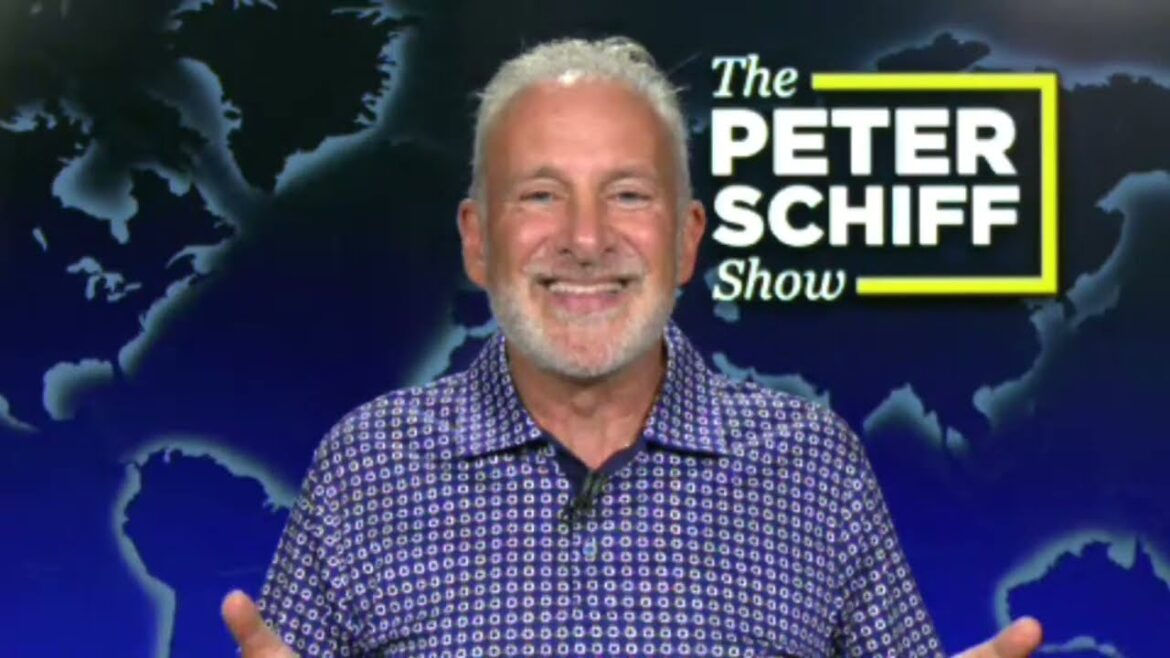Gold has all the potential to go unprecedentedly high. But silver will be gold on
Site:
Precious metals news
Gold prices briefly recovered after falling to below $2,300, the biggest daily drop in nearly two years, influenced by weaker-than-expected U.S. business activity in April. This slowdown, marked by the first employment decline since 2020 and a contraction in the manufacturing and services sectors, has led to speculation about potential Federal Reserve rate cuts. Such cuts could benefit non-interest bearing assets like gold. However, despite a momentary lift from lower bond yields and a weaker dollar following the economic report, gold prices relinquished their gains amid diminishing geopolitical tensions in the Middle East.
What is Nvidia? If you’re a committed gamer the question may sound like nonsense. Nvidia, which was founded in 1993, is a tech company that makes GPUs and other products. It originally specialized in making products for the video game industry, that assisted in 3D rendering. If you were a committed gamer, you probably owned their products. If you weren’t, you might not have heard of them.
April saw the U.S. economy lose steam, according to recent S&P surveys, with businesses experiencing a downturn in new orders and a cutback in employment—the first since the pandemic began. The manufacturing purchasing managers index (PMI) dropped to a four-month low of 49.9, slipping below the growth threshold from 51.9 in March. Similarly, the services PMI decreased to 50.9 from 51.7, marking a five-month low.
 U.S. Business Activity Slows to Four-Month Low; Mixed Inflation Signals Emerge
U.S. Business Activity Slows to Four-Month Low; Mixed Inflation Signals EmergeApr 23, 2024 - 14:55:49 EDT
In April, U.S. business activity slowed to its lowest level in four months, driven by diminished demand. Concurrently, inflation indicators presented a mixed view: although the rate of inflation showed slight easing, input prices still surged, hinting at potential future relief if the economy continues to decelerate. This trend is particularly relevant as the Federal Reserve monitors for signs of slowing economic activity that might further reduce inflation pressures. S&P Global reported on Tuesday that its flash U.S. Composite PMI Output Index declined to 50.9 from 52.1 in March. A reading above 50 still signifies expansion, indicating continued growth in the private sector despite the slowdown.
Apr 23, 2024 - 14:26:57 EDT
Despite recent downturns in the U.S. stock market, optimism remains high among investors, particularly regarding corporate earnings. According to a Bloomberg survey of 409 participants, nearly two-thirds express confidence that forthcoming corporate results will bolster the S&P 500 index—an optimism level not seen since the question was first posed in October 2022. Goldman Sachs strategists Dominic Wilson and Kamakshya Trivedi have described the situation as "paradise postponed," acknowledging emerging near-term risks to stocks, which they believe are concerning but not disastrous. Throughout the year, they have maintained a relatively positive outlook on the impact of the Federal Reserve's decision not to cut interest rates this year.
In April, US business activity experienced its slowest expansion of the year, triggered by a significant pullback in demand. This slowdown resulted in the first employment decline seen since 2020. The S&P Global flash composite index, which tracks output at manufacturers and service providers, fell 1.2 points to 50.9—the most substantial drop since August. While readings above 50 still denote expansion, the downturn is notable. Moreover, the composite measure of orders indicated the first contraction in six months, signaling potential challenges ahead for the US economy.
JPMorgan suggests that the recent stock market rebound does not signal the end of a sell-off, with the potential for further declines. The market outlook is dimmed by persistent inflation, a potential shift from expectations of Federal Reserve rate cuts to a realization of sustained higher rates, and stock valuations still above historical averages. Chief market strategist Marko Kolanovic indicates that while stock prices may stabilize in the short term due to earnings reports, the overarching market sentiment is one of caution. Kolanovic points to overconfidence in equity valuations, unyielding inflation, adjustments in Federal Reserve policies, and potentially too optimistic profit projections as reasons for his concern about the market's future.
 ZeroHedge: Speculative Froth Departing Gold as China Tightens Trading Conditions
ZeroHedge: Speculative Froth Departing Gold as China Tightens Trading ConditionsApr 23, 2024 - 11:15:21 EDT
ZeroHedge reports a shift in the gold market as China implements stricter trading regulations, indicating a departure of speculative trading interest. While the consistent physical demand from central banks and Chinese retail buyers offers a stable base for gold prices due to their less price-sensitive nature, speculative traders—who are indifferent to the commodity and focus solely on profit—are exiting. This speculative group, likened to overexcited children, is known for rapid and volatile trading behaviors driven by trends rather than fundamentals.
 Gold Futures Fall as Easing Geopolitical Strains Diminish Safe-Haven Appeal
Gold Futures Fall as Easing Geopolitical Strains Diminish Safe-Haven AppealApr 23, 2024 - 10:31:35 EDT
Gold futures saw a notable decline to their lowest value since early April, with June contracts on the New York Mercantile Exchange dropping 1.4% to $2,313.5 per troy ounce. This drop reflects eased tensions in the Middle East, diminishing the metal's appeal as a safe haven. From an all-time high of $2,448.8 on April 12, gold has retreated by 2.9% over the past week but is still up 12.5% over three months. Ole Hansen of Saxo Bank regards this downturn as a healthy correction that could test the market's confidence in gold's upward momentum, suggesting the upcoming price movements will reveal the true demand for gold amidst potential sell-offs by hedge funds.
 U.S. Oil Falls as Fears of Iran-Israel Conflict Recede, Trading Below $81
U.S. Oil Falls as Fears of Iran-Israel Conflict Recede, Trading Below $81Apr 23, 2024 - 10:24:33 EDT
U.S. crude oil prices dropped below $81 per barrel, a dip not seen since March, signaling the market's limited concern over potential new sanctions on Iranian oil. The West Texas Intermediate (WTI) crude has fallen beneath its 50-day moving average for the first time in several months, down from the year's high of $87.62. This decrease in price reflects the easing of geopolitical tensions as Iran and Israel move away from the prospect of a broader conflict, despite the recent exchange of strikes.
The heirs of Danish businessman Lars Emil Bruun are set to sell a rare coin collection valued at US$72 million, a century after its initial inheritance due to the stipulations of Bruun's will. Despite attempts to contest the will, the collection of 20,000 pieces was preserved intact as per Bruun's wishes. The sale, to be conducted over several years by Stack’s Bowers, an auction house specializing in coins, is scheduled to begin this fall. The revelation of this vast and untouched collection has astonished numismatic experts, including Vicken Yegparian of Stack's Bowers.
 Gold Prices Plunge as Middle East Tensions Ease and Fed Maintains Higher Rates
Gold Prices Plunge as Middle East Tensions Ease and Fed Maintains Higher RatesApr 23, 2024 - 09:50:07 EDT
Gold prices continued to fall following the biggest single-day slump in nearly two years, influenced by easing Middle East tensions and indications that the Federal Reserve might maintain higher interest rates for longer. After reaching record levels earlier this month, gold dipped below $2,300 an ounce, dropping 2.7% on Monday. This decline was driven by reduced geopolitical risk as Iran downplayed the significance of recent Israeli strikes, suggesting there might be no further escalation. Richard Grace, a senior currency analyst at ITC Markets, noted that the fall could also be attributed to some tactical short-selling amid the recent surge in gold prices.
Peter leads off this week with an episode covering last Friday’s stock catastrophe, Bitcoin’s recent performance, and the start of President Trump’s so-called “hush-money” trial.
 BITCOIN MINING BOONDOGGLE CONTINUES: Red Queen Syndrome Now Hitting The Bitcoin Mining Industry
BITCOIN MINING BOONDOGGLE CONTINUES: Red Queen Syndrome Now Hitting The Bitcoin Mining IndustryApril 23, 2024
While the Bitcoin price is at all-time highs, the mining industry is now facing the Red Queen Syndrome. The only reason the Bitcoin Mining Industry has survived this long is due to the massive share dilution by the major public companies...
Apr 22, 2024 - 15:37:56 EDT
Ray Dalio, a prominent billionaire investor and hedge fund founder, recommends owning gold as a safeguard against potential debt and inflation crises. Highlighting the escalating global debt levels, Dalio has repeatedly voiced concerns about a possible U.S. debt crisis, which he believes could thrust the economy into a balance sheet recession — a situation where deleveraging and declining asset prices could impede economic growth.
The Federal Reserve's traditional forecasting approach is facing criticism for its inadequacy in reflecting the dynamic economic environment, particularly in the post-pandemic period. While the forecasts have often been inaccurate, the real concern lies in the method's focus on specific projections—like the anticipated three interest rate cuts in 2024—which now seem outdated due to unexpected inflationary pressures. This issue underscores the need for a more flexible and comprehensive forecasting model that can better accommodate the range of potential economic scenarios.
 Ray Dalio's Risk-Parity Strategy Falters, Prompting Massive Investor Pullback
Ray Dalio's Risk-Parity Strategy Falters, Prompting Massive Investor PullbackApr 22, 2024 - 11:07:33 EDT
Ray Dalio's renowned risk-parity investment strategy, which gained prominence during the Great Financial Crisis, is experiencing a significant downturn, leading to substantial withdrawals by institutional investors. Over the past five years, risk-parity funds managed by Bridgewater Associates and others have underperformed, prompting public pensions in New Mexico, Oregon, and Ohio to retract substantial investments, reducing the fund sizes by an estimated $70 billion from their peak. Despite calls from these firms for more time to recover, given predictions of a divergent market landscape in the coming decade, investors' patience has worn thin. The strategy's struggle to deliver during the volatile post-pandemic market phases has notably shaken confidence in an approach that emphasizes diversification and often leverages to balance returns against risks.
Apr 22, 2024 - 11:03:11 EDT
The S&P 500 is facing its most significant monthly decline since December 2022, with a 5.5% drop in April, effectively halving the gains made earlier in the year. This downturn is attributed to rising bond yields, spurred by ongoing inflation fears that a strong economy might be sustaining. Despite nearing its March 28 record peak, the recent rise in Treasury yields, which accelerated this April, has unsettled the U.S. stock market. Bob Elliott of Unlimited Funds suggests that Treasury rates may need to increase further to temper economic demand sufficiently for the Federal Reserve to be assured that inflation is moving consistently towards its 2% goal.
Despite the Federal Reserve's aggressive interest rate hikes—increasing rates 11 times from zero to 5.5% between March 2022 and January 2024—the U.S. economy has shown resilience with growth near 3%, stable unemployment, and strong performances in commodities and stock markets. However, the outlook for interest rates remains uncertain; while initial predictions favored six rate cuts in 2024, recent inflation trends have adjusted expectations to possibly only two cuts, as noted by Goldman Sachs. Federal Reserve Chair Jerome Powell has suggested that it may take longer than anticipated to curb inflation sufficiently to lower rates, with former Treasury Secretary Lawrence Summers even hinting at the possibility of another rate hike.
 Rising Delinquencies Among Low-Income U.S. Borrowers Signal Economic Warning
Rising Delinquencies Among Low-Income U.S. Borrowers Signal Economic WarningApr 22, 2024 - 10:55:47 EDT
In the U.S., lower-income borrowers are increasingly unable to meet their loan obligations, prompting banks to tighten credit availability for products like credit cards and car loans. This financial strain is partly due to dwindling savings and persistent high interest rates which are exacerbating the budget constraints of households earning under $45,000 annually. The situation is starkly different for higher-income groups, who continue to demonstrate financial resilience. Austan Goolsbee of the Chicago Federal Reserve and Arijit Roy of U.S. Bancorp highlighted concerns about rising consumer delinquencies and default rates, especially among first-time and low-income borrowers, signaling potential worsening economic conditions.



